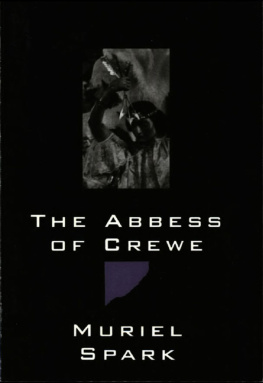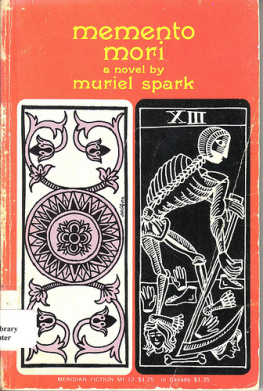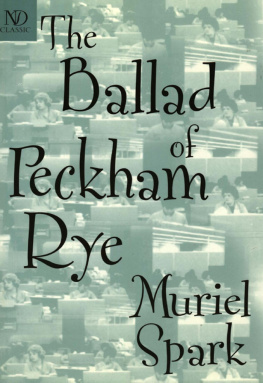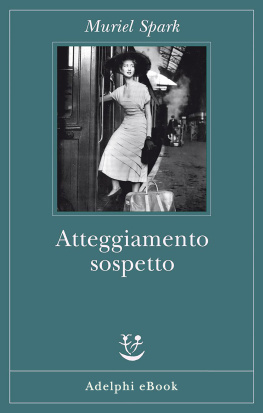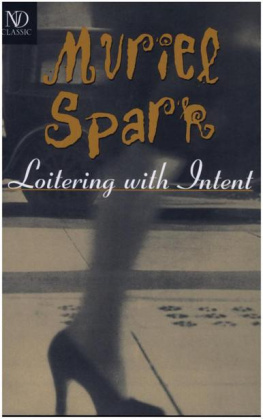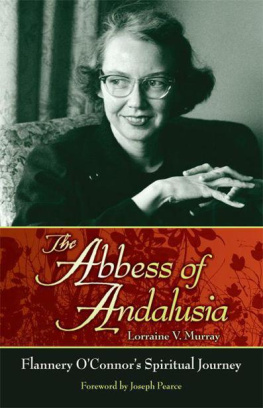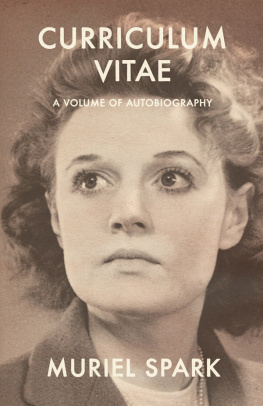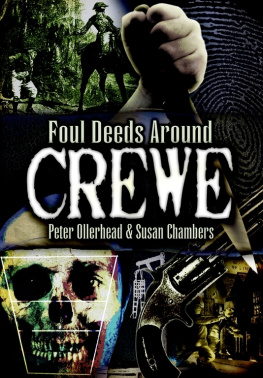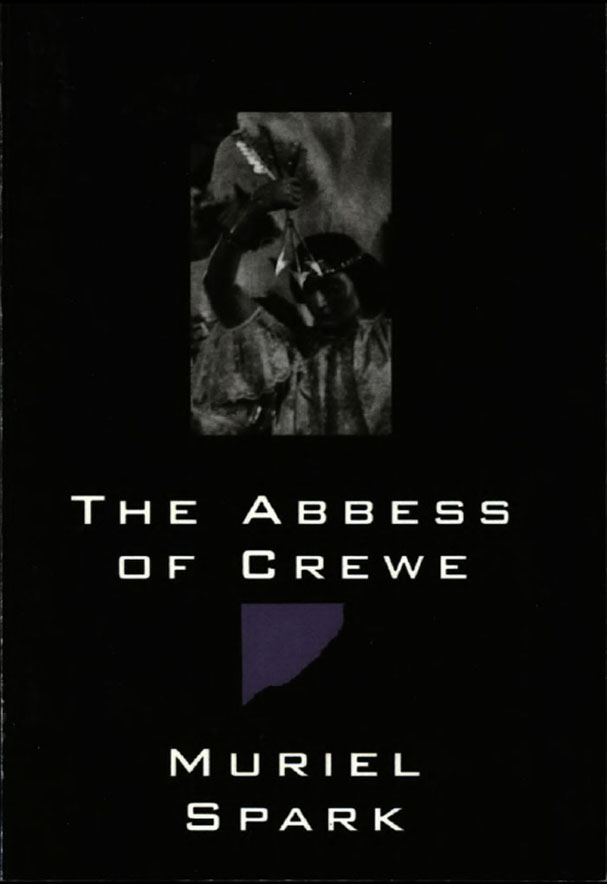T HE A BBESS OF
C REWE
Come let us mock at the great
That had such burdens on the mind
And toiled so hard and late
To leave some monument behind,
Nor thought of the levelling wind
Mock mockers after that
That would not lift a hand maybe
To help good, wise or great
To bar that foul storm out, for we
Traffic in mockery.
From W.B. Yeats,
Nineteen Hundred and Nineteen
Chapter 1
W HAT is wrong, Sister Winifrede, says the Abbess, clear and loud to the receptive air, with the traditional keyhole method?
Sister Winifrede says, in her whine of bewilderment, that voice of the very stupid, the mind where no dawn breaks, But, Lady Abbess, we discussed right from the start
Silence! says the Abbess. We observe silence, now, and meditate. She looks at the tall poplars of the avenue where they walk, as if the trees are listening. The poplars cast their shadows in the autumn afternoons end, and the shadows lie in regular still file across the pathway like a congregation of prostrate nuns of the Old Order. The Abbess of Crewe, soaring in her slender height, a very Lombardy poplar herself, moving by Sister Winifredes side, turns her pale eyes to the gravel walk where their four black shoes tread, tread and tread, two at a time, till they come to the end of this corridor of meditation lined by the secret police of poplars.
Out in the clear, on the open lawn, two men in dark police uniform pass them, with two Alsatian dogs pulling at their short leads. The men look straight ahead as the nuns go by with equal disregard.
After a while, out there on the open lawn, the Abbess speaks again. Her face is a white-skinned English skull, beautiful in the frame of her white nuns coif. She is forty-two in her own age with fourteen generations of pale and ruling ancestors of England, and ten before them of France, carved also into the bones of her wonderful head. Sister Winifrede, she now says, whatever is spoken in the avenue of meditation goes on the record. Youve been told several times. Wont you ever learn?
Sister Winifrede stops walking and tries to think. She strokes her black habit and clutches the rosary beads that hang from her girdle. Strangely, she is as tall as the Abbess, but never will she be a steeple or a tower, but a British matron in spite of her coif and her vows, and that great carnal chastity which fills her passing days. She stops walking, there on the lawn; Winifrede, land of the midnight sun, looks at the Abbess, and presently that little sun, the disc of light and its aurora, appears in her brain like a miracle. You mean, Lady Abbess, she says, that youve even bugged the poplars?
The trees of course are bugged, says the Abbess. How else can we operate now that the scandal rages outside the walls? And now that you know this you do not know it so to speak. We have our security to consider, and Im the only arbiter of what it consists of, witness the Rule of St Benedict. Im your conscience and your authority. You perform my will and finish.
But were something rather more than merely Benedictines, though, arent we? says Sister Winifrede in dark naivety. The Jesuits
Sister Winifrede, says the Abbess in her tone of lofty calm, theres a scandal going on, and youre in it up to the neck whether you like it or not. The Ancient Rule obtains when I say it does. The Jesuits are for Jesuitry when I say it is so.
A bell rings from the chapel ahead. It is six oclock of the sweet autumnal evening. In we go to Vespers whether you like it or whether you dont.
But I love the Office of Vespers. I love all the Hours of the Divine Office, Winifrede says in her blurting voice, indignant as any common Christians, a singsong lament of total misunderstanding.
The ladies walk, stately and tall, but the Abbess like a tower of ivory, Winifrede like a handsome hostess oar businessmans wife and a fair week-end tennis player, given the chance.
The chapel has not been bugged, remarks the Lady Abbess as they walk. And the confessionals, never. Strange as it may seem, I thought well to omit any arrangement for the confessionals, at least, so far.
The Lady Abbess is robed in white, Winifrede in black. The other black-habited sisters file into the chapel behind them, and the Office of Vespers begins.
The Abbess stands in her high place in the choir, white among the black. Twice a day she changes her habit. What a piece of work is her convent, how distant its newness from all the orthodoxies of the past, how far removed in its antiquities from those of the present! Its the only way, she once said, this Alexandra, the noble Lady Abbess, to find an answer always ready to hand for any adverse criticism whatsoever.
As for the Jesuits, there is no Order of women Jesuits. There is nothing at all on paper to reveal the mighty pact between the Abbey of Crewe and the Jesuit hierarchy, the overriding and most profitable pact. What Jesuits know of it but the few?
As for the Benedictines, so closely does the Abbess follow and insist upon the ancient and rigid Rule that the Benedictines proper have watched with amazement, too ladylike, both monks and nuns, to protest how the Lady Abbess ignores the latest reforms, rules her house as if the Vatican Council had never been; and yet have marvelled that such a great and so Benedictine a lady should have brought her strictly enclosed establishment to the point of an international newspaper scandal. How did it start off without so much as a hint of that old cause, sexual impropriety, but merely from the little misplacement, or at most the theft, of Sister Felicitys silver thimble? How will it all end?
In these days, the Abbess had said to her closest nuns, we must form new monastic combines. The ages of the Father and of the Son are past. We have entered the age of the Holy Ghost. The wind bloweth where it listeth and it listeth most certainly on the Abbey of Crewe. I am a Benedictine with the Benedictines, a Jesuit with the Jesuits. I was elected Abbess and I stay the Abbess and I move as the Spirit moves me.
Stretching out like the sea, the voices chant the Gregorian rhythm of the Vespers. Behind the Abbess, the stained-glass window darkens with a shadow, and the outline of a man climbing up to the window from the outside forms against the blue and the yellow of the glass. What does it matter, another reporter trying to find his way into the convent or another photographer as it might be? By now the scandal occupies the whole of the outside world, and the people of the press, after all, have to make a living. Anyway, he will not get into the chapel. The nuns continue their solemn chant while a faint grumble of voices outside the window faintly penetrates the chapel for a few moments. The police dogs start to bark, one picking up from the other in a loud litany of their own. Presently their noises stop and evidently the guards have appeared to investigate the intruder. The shadow behind the window disappears hastily.
These nuns sing loudly their versicles and responses, their antiphons:
Tremble, O earth, at the presence of the Lord;
at the presence of the God of Jacob
Who turned the rock into pools of water:
and the strong hills into fountains of water.
Not to us, O Lord, not to us, but to thy name, give
glory: because of thy mercy and thy faithfulness.
But the Abbess is known to prefer the Latin. It is said that she sometimes sings the Latin version at the same time as the congregation chants the new reformed English. Her high place is too far from the choir for the nuns to hear her voice except when she sings a solo part. This evening at Vespers her lips move with the others but discernibly at variance. The Lady Abbess, it is assumed, prays her canticles in Latin tonight.

